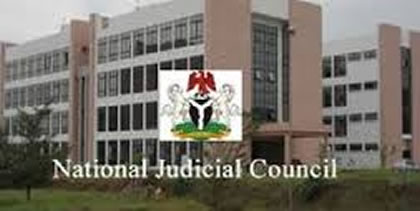
The probe panels would determine the culpability of the judges in the various petitions filed against them by individuals and corporate bodies.
A statement issued on Friday by the Director of Information in NJC, Soji Oye, in Abuja, said that the decision to investigate the Judges was taken at its 99th meeting presided over by the Chief Justice of Nigeria, Justice Olukayode Ariwoola.
The decision, the statement said, was sequel to the submission of recommendations of three Preliminary Complaint Assessment Committees, which considered 66 petitions forwarded to them by the Council from all over the Federation.
But the statement did not name the judges to be probed, their divisions, and the nature of their alleged offences.
The statement, however, revealed that the NJC dismissed petitions against 51 Judicial Officers of the Federal and State High Courts for either lack of merit, being subjudice or being matters for an appeal or that the concerned judge have retired from Service.
The NJC explained that it was formally presented with the reviewed Judicial Information Technology Policy, which established the general requirements and responsibilities for the Nigerian Judiciary systems and information.
The statement reads in part, “The policy provides for the guidance of Courts and Judicial Bodies in protecting Confidentiality, Integrity, and Availability of judiciary function and process.
“It also stipulates guidance for acceptable use of system, services, and technologies as well as provisions for secure storage of judicial data and recovery processes in the event of emergencies or distress.
“Similarly, It further provides guidelines and incident management policies, including Data Centre deployment and use policies.
“The scope is intended for all Courts and Judicial Bodies in Nigeria including staff of the Nigerian judiciary, employed or contracted to any Judicial Body handling information that is generated, received, stored, transmitted, or printed.
“It encompasses all personal or Judiciary identifiable data held in their Courts and Judicial Bodies’ systems and process including supporting mechanisms and technologies for managing such data at rest or in transit.
“All staff are expected to comply with the policy and associated standard protocols and procedures that have been put in place to support the document.
“The policy is applicable to all Courts unit and departments of all Judicial Bodies in the Nigerian Judiciary.
“Council noted appointments of Judicial Officers recommended for appointment at the last meeting who have been sworn–in as Judges of Federal and State High Courts.
“Reports from Standing and ad-hoc Committees of the Council were also presented at the Meeting as well as
notifications of retirement of 16 Judges and notification of the death of a Judge from the Federal and State High Courts.”





